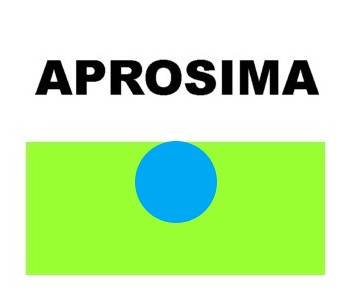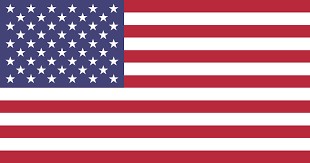 |
 |
LANGUAGES |
| Let's save the planet | A new world | For a united region | Reader's opinion | Directors, Statutes | Donations |
| News headlines | Newspaper archive | Editorial | Editorial Archive | About Essequibo | Naturalists in Venezuela |
|
THE HIDDEN SIDE OF DRUGS: ECONOMIC BENEFITS |
| Author: Dr. Jesus Sotillo Bolivar. Professor at the Central University of Venezuela
The unilateral legalization of marijuana, without consensus of the specialized organizations in the matter, constitutes a step to legalize other drugs and behind these measures is the search for economic resources, by countries, which can no longer, with their current systems, satisfactorily meet the needs of their populations. The social phenomenon of drugs, from the academic and investigative point of view, has tried to be characterized in different ways. Some of them have been universalized and conceptualized in the Conventions, norms and laws where they contemplate procedures to combat it or keep it under control of the national or international authorities. In this retrospective we can see that it has been characterized as an issue closely linked to health, drugs in this sense, have been seen as a medical-health problem, where the predominantly affected good is the health of the individual. It has also been characterized from the moral point of view, drugs are bad and therefore they must be fought. The social and psychological vision has not been lacking in these characterizations, where it has been predominantly pointed out as harmful to social life in general and damaging to the individual from the emotional and behavioral point of view. From the legal point of view, the drug phenomenon has also had its appreciations. Generally, in all its modalities it has been considered a crime. In our legislation it is a multi-offensive crime insofar as it affects several assets simultaneously such as health, society, family, etc. But the characterization of the drug consumer has also varied, for example, from drug addict to drug addict, and from criminal to sick person. . In many societies such as the North American one, for example, there has been a love-hate relationship with Marijuana, it has been legalized, it has been made illegal, it has been considered for recreational use, it has been used in commerce, food, etc. and now, lately, they have found "medicinal" properties. Any observer or scholar of the topic of drugs, in its development, will be able to appreciate this aforementioned relationship, as well as notice that the Hidden Face of Drugs, which are the Economic Benefits generated by their Cultivation and Trafficking, have always been underestimated, although they are always present. The money obtained by the Cultivation, Trafficking and Consumption of Drugs in the World, is immeasurable, it would be risky to quantify it, but we are sure that it is as abundant as the Income obtained by the exploitation of oil or by Tourism, to give just two examples, as a reference. Millions of dollars and euros from this illicit business are added to the International Financial System through banking and other roles and modalities that this system has, and there are even some countries that have an underground subsystem for drug income that practically sustains their economies, but that is not reflected in the official balance sheets of their statistics and Central Banks. The drug phenomenon today has become so globalized in societies that any commercial, financial, economic modality in general is splashed with money from drug trafficking. Any activity that is carried out in our current societies, from religious, tourist, gambling, charity, crafts, and so on, can be financed by dirty money from drug trafficking and perhaps the vast majority of the population ignores this reality. This harsh reality, which traps us like in a net, is so true that there is no doubt that behind the current campaigns for the legalization of drugs and the implementation by some countries of approving in their legislation the legalization of some drugs such as marijuana, there are economic motivations. That is to say, if drugs make money and we need the money to overcome economic crises, which can no longer be overcome by traditional plans, why not use the money from drugs? In fact, there are people who have proposed it, in the case of Spain, for example, there is a scholar on the subject who has said, why not sell marijuana here, and get that money, and prevent, for example, Spaniards from going to Morocco to be tourists and spend millions of euros consuming marijuana, when that money can stay in Spain, by legalizing it? This may not be admitted by countries that have now, with Vaseline, gone from illegalizing marijuana to its recreational use and from recreational use, miraculously, now, have found medicinal benefits, when their own researchers have demonstrated the serious damage to consumers in general and especially to young people in development. We ask ourselves: Will this be a step towards legalizing all drugs in the 21st century? But another harsh reality that allows us to observe the drug phenomenon is with respect to society in general. The great impoverished masses that governments do not reach to resolve their enormous needs, must resolve their situation in some way. If the government does not attend to them, and there are no employment plans to channel their lives, if they are left adrift without prospects, opportunities or a future. If these great masses do not find a solution to their needs within the framework of social legal orders, then, they go to illegality, to subsume themselves in the world of drugs because there, they solve their problems to a certain extent. This trend is very dangerous, because if the impoverished sectors, without official help, do not see their problems solved through government initiatives, they will massively turn to the world of drugs, regardless of the risk they run, and in this way the penetration of drugs in all societies and in the world in general will be unstoppable. We see then two sides of the same coin, governments that try to solve economic problems by legalizing drugs to obtain those resources and the great destitute masses that, as they do not see their needs resolved by official initiatives, look to the world of drugs to solve them by their own hand. A great dilemma, which merits a thorough discussion of the drug phenomenon, very opportune, today when we see that the International Organizations seem to be sitting on their hands in front of this topic that advances by leaps and bounds. |


